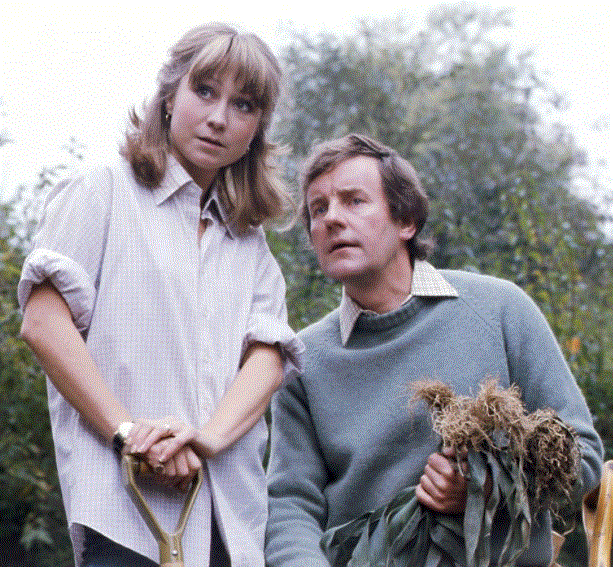Yes, many Aucklander’s have been living off the land for years … but not in the traditional way we think.
Let me explain…
Definition: “live off the land”
Source: https://idioms.thefreedictionary.com/
To live by eating only the food that one produces from the land; to survive by gathering or stealing food, fruits, berries, eggs, etc., while traveling through the countryside.
We lived off the land for a few years when we first started out farming.
The homeless man wandered about, living off the land.
Many people may choose this lifestyle and many people may remember watching Tom and Barbara Good in the television series The Good Life where they adopt a sustainable, simple and self-sufficient lifestyle while staying in their home in The Avenue, Surbiton. They turn their front and back gardens into allotments, growing soft fruit and vegetables. They introduce chickens, pigs (Pinky and Perky), a goat (Geraldine) and a cockerel (Lenin). They generate their own electricity, using methane from animal waste, and attempt to make their own clothes. They sell or barter surplus crops for essentials they cannot make themselves. They cut their monetary requirements to the minimum with varying success.

Aucklander’s Are Not Farmers
Of course very few Auckland people are commercial farmers, even if there has been a trend to have a vege patch.
In small town New Zealand it is possible to live off the land and from the sea; however in Auckland most sections are too small to produce much in the way of produce, and almost certainly not enough to provide enough to live on.
Of course, anything that you can produce will help save money and that’s a good thing.
Living Off The Land Auckland Style
When it comes to talking about Aucklander’s living off the land, they are in fact living off the increasing value of the land.
As Auckland mortgage brokers we speak with a huge number of people who have mortgages that are larger than the what they paid for the house – so rather than pay off the mortgage they have obviously borrowed more since the initial purchase.
A real life example;
Today I met a lady with a home in Massey which she purchased in 1994 (23-years ago) for $147,000 and while she probably would have had a 25-year mortgage and therefore should have the loan almost paid off, she is asking to refinance the mortgage and borrow some extra money so she will end up with a mortgage of close to $185,000.
That is an increase in the mortgage of $38,000 or about $1,650 per year.
Over the same period of time the property has increased in value and now has a new CV of $920,000.
That is an increase of $773,000 over 23-years or just over $33,600 per year.
While this all sounds good, it only really helps if she downsizes or shifts out of Auckland to somewhere with cheaper houses.
This is just one example that I’ve seen this week, but it is a common occurrence to see people that are living off the land in a similar manner.
 What Do People Spend The Money On?
What Do People Spend The Money On?
Some of these people have borrowed for good reasons, while others (and maybe most) have financed their over-spending.
A good reason to borrow money against the family home might be to invest in income generating assets or business. This way you are able to obtain cheap mortgage finance and are generating extra income and while it is preferable not to borrow against the family home, many people will as it is easier and cheaper. The key is to ensure that there is a plan to pay back the money that has been borrowed.
A bad reason to borrow money is to fund over-spending or otherwise known as your lifestyle. It is very common for people to borrow money on their mortgage to pay for a new vehicle, and boat or holiday. While we can argue that this is the cheapest way to fund these purchases any borrowing needs to be paid off within a term suitable for the item purchased. A lot of people also do debt consolidation within their mortgage and again while this seems the logical way to reduce the cost of debt, any debt consolidated into a mortgage needs to have a sensible repayment plan and be combined with a change in spending habits so you do not continue to to rack up more debts.
When The Money Tree Dies
While for years Aucklander’s have been able to live off the land, the ability to continue this is coming to an end … the money tree is dying!
There are two fundamental reasons for this;
- Property values do not always increase – there has been a lot of efforts to slow the price increases we have seen over recent years and some indications are suggesting that prices have leveled off, although most economists still expect to see continuing increases but at a slower rate.
- People can only afford so much – the size of the loans people have is limited to their incomes and therefore how much they can afford to repay. Over the years people have increased their borrowing to the point where The Reserve Bank has suggested that they may introduce new rules to link the maximum borrowing to a persons income – debt to income ratios. This has caused the banks to get stricter on how they calculate what people can afford and combined with the larger mortgages we are now seeing a significant number of mortgage applications being declined based on the lack of affordability.
In the future we would expect that people will no longer be able to keep increasing their mortgages and instead will have to live within their means.
The ability for Aucklander’s to live off the land is coming to an end, but that may be a good thing.
